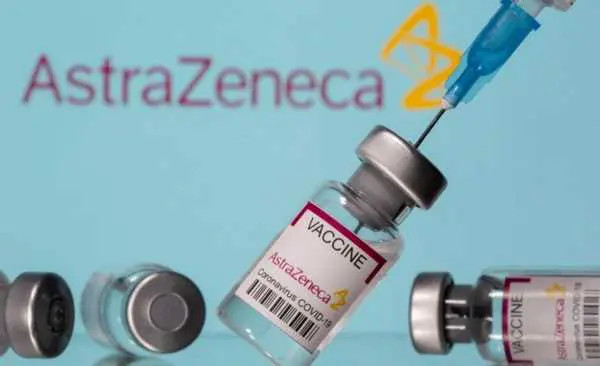What do Ministry of Health experts say about the information that the AstraZeneca COVID-19 vaccine can lead to the risk of blood clots?
According to Associate Professor, Dr. Luong Ngoc Khue: Initially, when deploying the COVID-19 vaccine injection, we were very cautious. The Ministry of Health has developed a vaccination process, the person receiving the injection must have their blood pressure measured, be screened before the injection, and be monitored after the injection at the injection site.
Regarding the information that the AstraZeneca COVID-19 vaccine is being accused of causing a rare side effect that can lead to blood clots, Associate Professor, Dr. Luong Ngoc Khue - Director of the Department of Medical Examination and Treatment Management (Ministry of Health) said that this is a side effect that Vietnam was warned about when organizing the injection of the AstraZeneca COVID-19 vaccine.
"Initially, when deploying the COVID-19 vaccine, we were very cautious. The Ministry of Health established a strict vaccination process. People who received the vaccine had to have their blood pressure measured, be screened before the injection, and be monitored after the injection at the injection site. After that, we also gradually adjusted when we saw that the vaccine did not cause serious health effects. From the beginning, the injection was only given at medical facilities, but then the COVID-19 vaccination was deployed more widely," said Associate Professor, Dr. Luong Ngoc Khue.

Experts also said that most people who have received the AstraZeneca COVID-19 vaccine, which has been administered for several years and is now no longer effective, do not need to worry too much about side effects leading to blood clots.
In Vietnam, during the COVID-19 pandemic, in addition to the 30 million doses of COVID-19 vaccine ordered from AstraZeneca, Vietnam also received AstraZeneca vaccines sporadically through sponsorship programs.
These vaccines have contributed to the success of the COVID-19 vaccination campaign to prevent the COVID-19 epidemic in 2022. Hundreds of millions of people have been vaccinated with 2-4 doses of COVID-19 vaccines, including AstraZeneca, Pfizer, Moderna...
By mid-2023, Vietnam had administered more than 266.5 million doses of COVID-19 vaccine. Vietnam is one of the countries with the highest COVID-19 vaccine coverage in the world, with the rate of basic vaccination for people aged 12 and over reaching nearly 100%, and the rate of 4th vaccination for people aged 18 and over at high risk reaching 89.6%.
In early 2024, a representative of the National Institute of Hygiene and Epidemiology also said that Vietnam only has more than 400,000 doses of Pfizer's COVID-19 vaccine left, with an expiry date of September 2024.
COVID-19 vaccines are effective in preventing illness and complications caused by COVID-19, reducing the rate of severe illness and death.
According to the latest guidelines from the World Health Organization, there are 3 priority groups for COVID-19 vaccination: elderly people aged 50 and over with underlying medical conditions (re-vaccinated 9-12 months after the last dose), followed by pregnant women and people who have not received any vaccine.
According to the Telegraph, AstraZeneca has admitted for the first time in legal documents submitted to the Supreme Court that its COVID-19 vaccine: "In very rare cases can cause thrombosis with thrombocytopenia syndrome".
